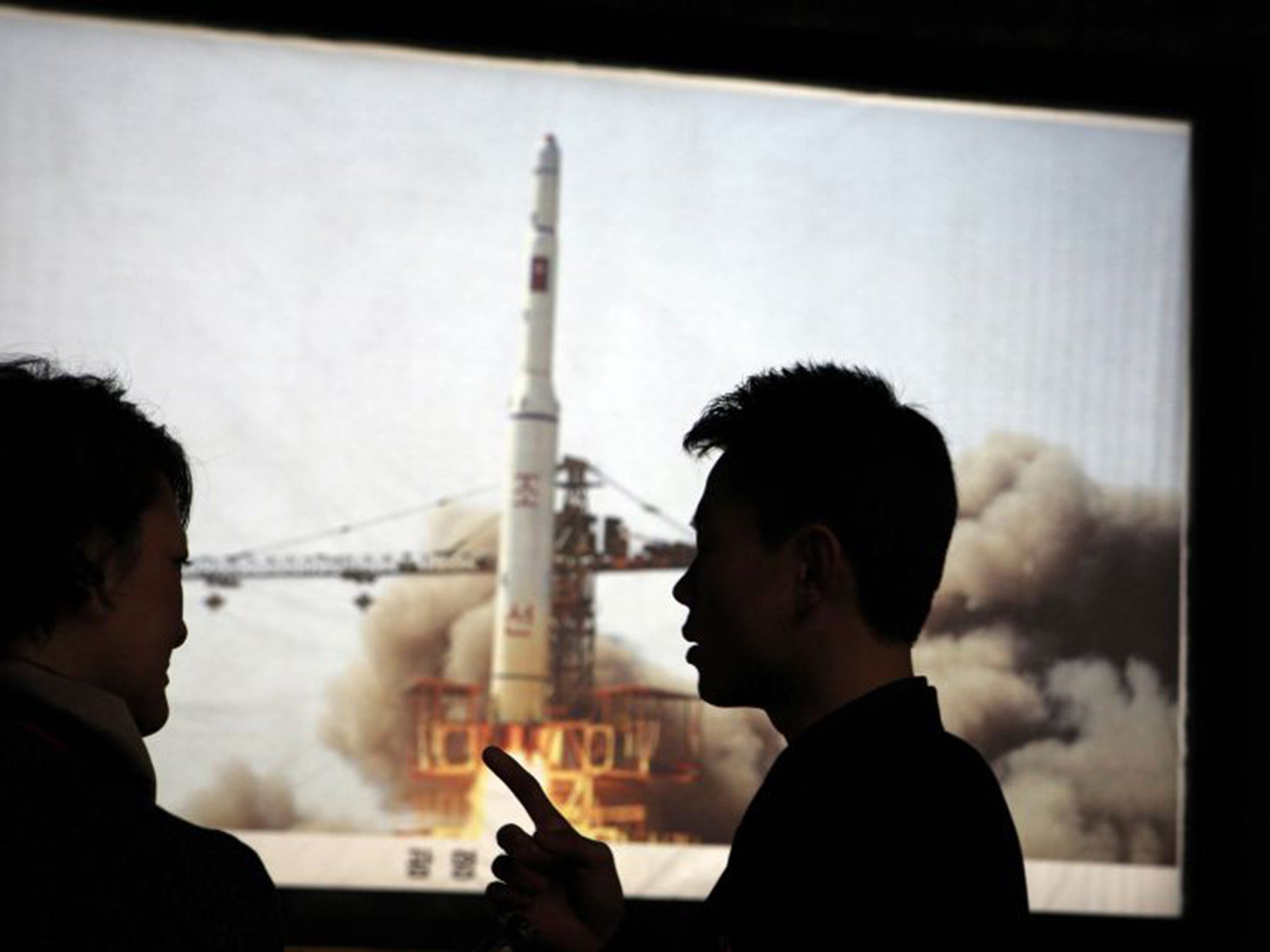US, Japan and South Korea deploy military assets as North Korea brings forward rocket launch
China and US agree that Pyongyang’s latest plan is ‘destabilising’ for the region amid calls for further UN sanctions

The US has deployed tracking equipment, Japan has placed missiles in central Tokyo and South Korea has positioned Aegis destroyers off its coast. The source of such military movement? The latest rocket launch by North Korea.
Pyongyang claims the rocket – which could be launched as soon as today – is part of a legitimate space programme and is merely sending a satellite into orbit. Its neighbours, along with the US and others, fear the supposed spaceshot is a cover for the kind of ballistic missile test that is banned under UN sanctions.
North Korea informed UN agencies last week that the launch of the “earth-observation satellite” could take place between tomorrow and 25 February but yesterday both South Korea and Japan said that the North had brought forward the launch window to between today and next Sunday. Japan has said they will shoot down the rocket or any pieces from it, should it break up, if it threatens to fall on their territory.
Following the change in potential launch date, the Japanese foreign ministry immediately set up an emergency response desk to monitor the launch and it is believed preparations for it are at an advanced stage. Japan’s The Asahi Shimbun newspaper quoted Pentagon officials as saying that fuelling of the rocket appeared to have begun, while satellite footage has also shown increased activity around the launch and fuel-storage areas. The last time the North launched a long-range rocket was in December 2012, when it claimed to have delivered the Bright Star satellite into orbit.
Anxiety in the region has been heightened by North Korea’s claim that it carried out a fourth nuclear test last month, an activity also banned by UN Security Council resolutions. It said the test involved a hydrogen bomb.
Despite the international community’s scepticism about that claim, even the North’s greatest ally in the region, China, is getting nervous. “The peninsula cannot be nuclearised and cannot have war or chaos,” President Xi Jinping said in a call with South Korea’s President Park Geun-hye, adding that “peace and stability on the peninsula” should be maintained.
In another phone call, Mr Xi and US President Barack Obama agreed the launch would be “provocative and destabilising”. The US has called for further UN sanctions on the North, a push that began after last month’s test and has intensified since the latest announcement .
Analysts, though, are wary of placing too much stock in the idea that the launch could lead to a leap in missile technology, saying that such a rocket would be a minor step on the road to long-range missiles.
David Wright, the co-director for the Global Security Program of the Union of Concerned Scientists, said: “While launching satellites helps North Korea learn about rocket technology ... it sees learning how to use space for various activities as an important long-term capability.”
Subscribe to Independent Premium to bookmark this article
Want to bookmark your favourite articles and stories to read or reference later? Start your Independent Premium subscription today.

Join our commenting forum
Join thought-provoking conversations, follow other Independent readers and see their replies